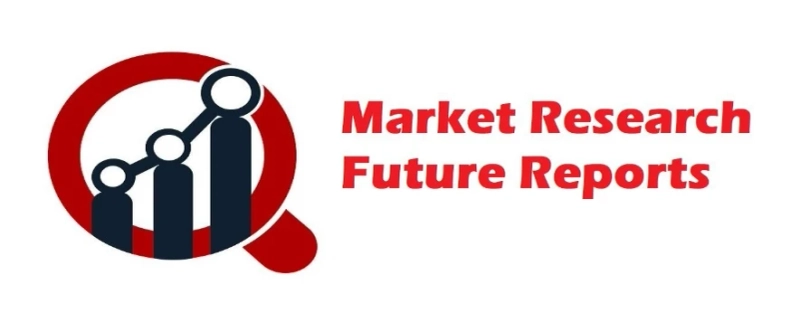The Healthcare Bioconvergence Market Size was valued at USD 31.2 Billion in 2022 and is projected to grow from USD 34.6 in 2023 to USD 112.4 Billion by 2032, exhibiting a compound annual growth rate (CAGR) of 8.25% during the forecast period (2023 - 2032).
The convergence of biology and technology is revolutionizing patient care. This synergy, aptly termed bioconvergence, is reshaping medical diagnostics, treatment methodologies, and patient experiences. As traditional boundaries blur between disciplines, a new era dawns in healthcare—one where interdisciplinary collaboration and innovation hold the key to enhanced efficacy and improved outcomes.
Market Overview:
Bioconvergence represents the seamless integration of various scientific disciplines, including biology, engineering, data science, and materials science, to develop advanced healthcare solutions. This approach transcends conventional silos, fostering synergistic interactions that amplify the potential of individual technologies. By harnessing the power of convergence, researchers and practitioners can tackle complex healthcare challenges with unprecedented precision and effectiveness.
Driving Forces Behind Bioconvergence:
Several factors fuel the momentum behind healthcare bioconvergence. Technological advancements, particularly in fields such as genomics, artificial intelligence (AI), and nanotechnology, provide the foundation for interdisciplinary collaboration. Furthermore, the growing emphasis on personalized medicine and value-based care necessitates innovative approaches that address individual patient needs while optimizing resource utilization.
Additionally, the convergence of healthcare and consumer electronics has spurred the development of wearable devices, remote monitoring systems, and mobile health applications. These interconnected technologies empower patients to actively participate in their care, facilitating real-time data collection and analysis to inform treatment decisions.
Applications Across the Healthcare Continuum:
Bioconvergence has far-reaching implications across the entire healthcare continuum, from diagnostics and therapeutics to patient engagement and wellness promotion. In diagnostics, integrated platforms combining genomic sequencing, proteomics, and imaging modalities enable comprehensive disease profiling and early detection of pathological changes.
In therapeutics, precision medicine approaches leverage genetic insights to tailor treatments to individual patients, maximizing efficacy while minimizing adverse effects. Furthermore, advancements in regenerative medicine and tissue engineering hold promise for personalized organ replacement and tissue repair.
On the patient engagement front, digital health solutions promote proactive wellness management through continuous monitoring, personalized coaching, and behavior modification strategies. These interventions empower individuals to adopt healthier lifestyles and adhere to treatment regimens, thereby reducing the burden of chronic diseases.
Key Players:
The healthcare bioconvergence market players are Ginkgo Bioworks from the US, Thermo Fisher Scientific Inc. also from the US, Ge Healthcare from the US, Siemens from Germany, Biomx from Israel, Century Therapeutics from the US, Singota Solutions from the US, Galvani Bioelectronics from the UK, Bico Group from the US, and Setpoint Medical from the US, among others. These companies contribute significantly to the advancement and innovation within the healthcare bioconvergence sector.
Market Segmentation:
The Healthcare Bioconvergence market exhibits diverse applications, notably in Drug Discovery, where Nanorobotics facilitates precise drug delivery. Regenerative Medicine, Diagnostic and Biological Sensors, Bioelectronics, and Engineered Living Materials showcase innovative strides. Optogenetics and Precision Medicine signify advanced therapeutic approaches. The end-user landscape spans the Pharmaceutical & Biotechnology Industry, Contract Research Organizations (CROs), and other entities, indicating broad market penetration. This segmentation delineates the multifaceted landscape of Healthcare Bioconvergence, highlighting its pivotal role across various sectors in advancing healthcare solutions.
Regional Outlook:
The regional outlook for healthcare bioconvergence spans across key global regions. In North America, both the United States and Canada are focal points, while Europe comprises Germany, France, the United Kingdom, Italy, Spain, and the rest of the region. In Asia-Pacific, notable players include China, Japan, India, Australia, South Korea, and the broader Asia-Pacific area. Meanwhile, the rest of the world encompasses regions like the Middle East, Africa, and Latin America, indicating a comprehensive global perspective on healthcare bioconvergence.
Challenges and Opportunities:
Despite its transformative potential, healthcare bioconvergence market trends is not without challenges. Interdisciplinary collaboration requires overcoming cultural and organizational barriers, fostering communication across disparate fields, and aligning incentives to promote shared goals. Moreover, ensuring data privacy, security, and interoperability remains paramount to realizing the full benefits of interconnected healthcare ecosystems.
The opportunities afforded by bioconvergence are immense. By leveraging diverse expertise and resources, stakeholders can accelerate innovation, drive down costs, and improve accessibility to high-quality care. Moreover, bioconvergence facilitates the transition from reactive to proactive healthcare models, emphasizing prevention, early intervention, and personalized interventions tailored to individual patient needs.
Future Scope:
As the healthcare landscape continues to evolve, bioconvergence will play an increasingly pivotal role in shaping its trajectory. Collaborative research initiatives, public-private partnerships, and regulatory frameworks that support innovation and entrepreneurship will be instrumental in fostering an ecosystem conducive to bioconvergence.
Moreover, education and training programs must evolve to equip the next generation of healthcare professionals with the interdisciplinary skills necessary to thrive in a bioconvergent environment. By embracing a culture of lifelong learning and innovation, stakeholders can harness the full potential of bioconvergence to address the most pressing healthcare challenges of our time.
About Related Reports:
Predictive Disease Analytics Market
Benign Prostatic Hyperplasia Treatment Market
Digital Respiratory Devices Market
Total Hip and Knee Replacements Market


